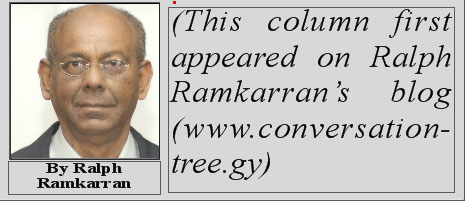It is with trepidation that I venture to write about an issue such as this, which invokes controversies from all sides. To deal with it realistically though, I have to reflect on another contentious aspect of our recent history, which continues to drive fear into the minds of a vast number of people. The results of the 1992 elections alone, ignoring all the other evidence, prove beyond any conceivable doubt that all prior elections in Guyana as an independent nation were rigged. The failure of the PNC to acknowledge that past, and its role in it, has left more than a lingering sense of suspicion in the minds of a large number of people. The suspicion is, that with the PNC once again in power, rigged elections are back on the agenda. Some PNC members, supporters and sympathisers don’t seem to understand this, or if they do, don’t care about it. Rigged elections in the past aggravated ethnic disharmony by creating the feeling in one section of the population that its vote was either being stolen or was worthless. Hence the controversy over employment practices at GECOM. I am not saying anything that is not widely known and accepted, although many would not wish to acknowledge it.
Guyana’s population has had decided preferences in terms of employment. We have always had African Guyanese tending towards employment in the state sector. In the private sector, they are mostly located in administration, rather than as entrepreneurs. Notwith-standing 28 years of PNC rule, during which African Guyanese were encouraged to go into business, followed by 23 years of PPP rule, during which Indian Guyanese were encouraged to seek employment in the state sector and particularly the security services, the essential employment preferences at the time of Independence have remained largely intact today. These employment preferences are rooted mainly in history.
Throughout Guyana’s life as an independent nation there have been complaints, mainly from African rights activists, that enough Africans are not encouraged to be entrepreneurs. These complaints are based on the assertion that Indian Guyanese dominate the business sector and therefore command a disproportionate portion of Guyana’s wealth in which Africans should share. The PPP and Indian rights activists have always complained that there is ethnic imbalance in the security services which is responsible for the physical safety and security of all Guyanese, including Indians, and there is fear of discrimination. The security services alone, among the state sector, were singled out for redress because of their potential impact on ethnic security. The PNC accepted the ICJ report just before Independence, recommending the balancing of the security services, but never implemented it.

